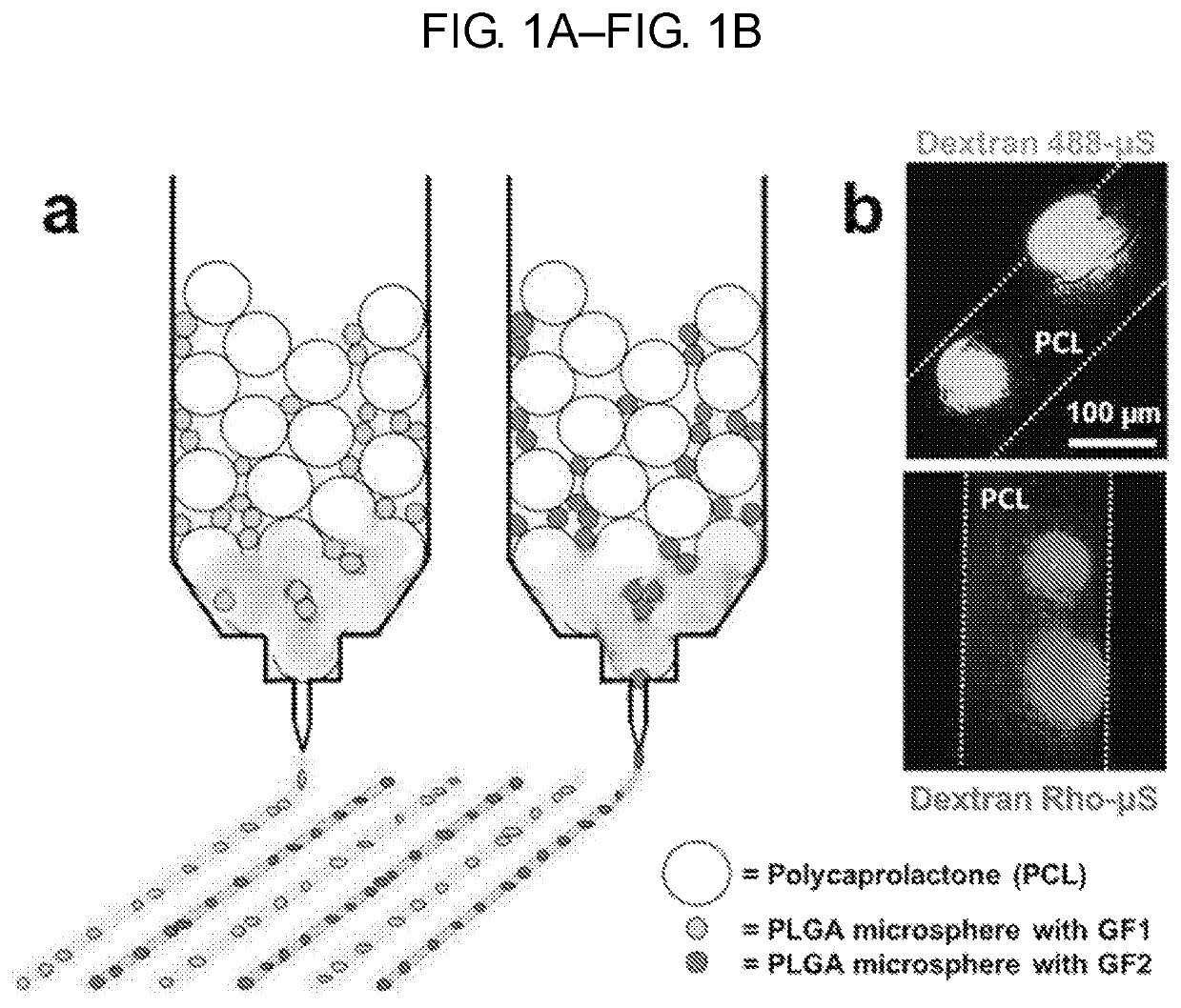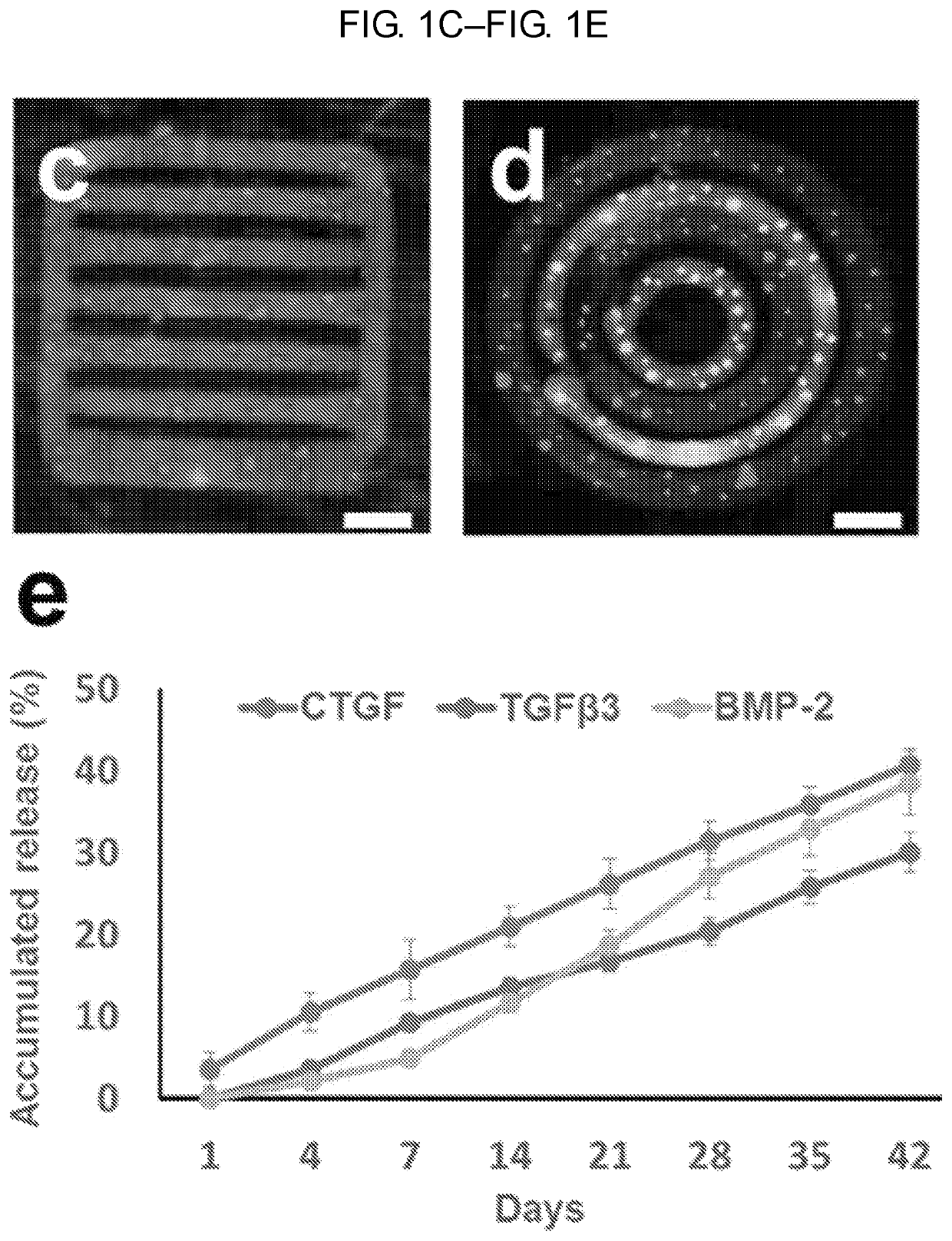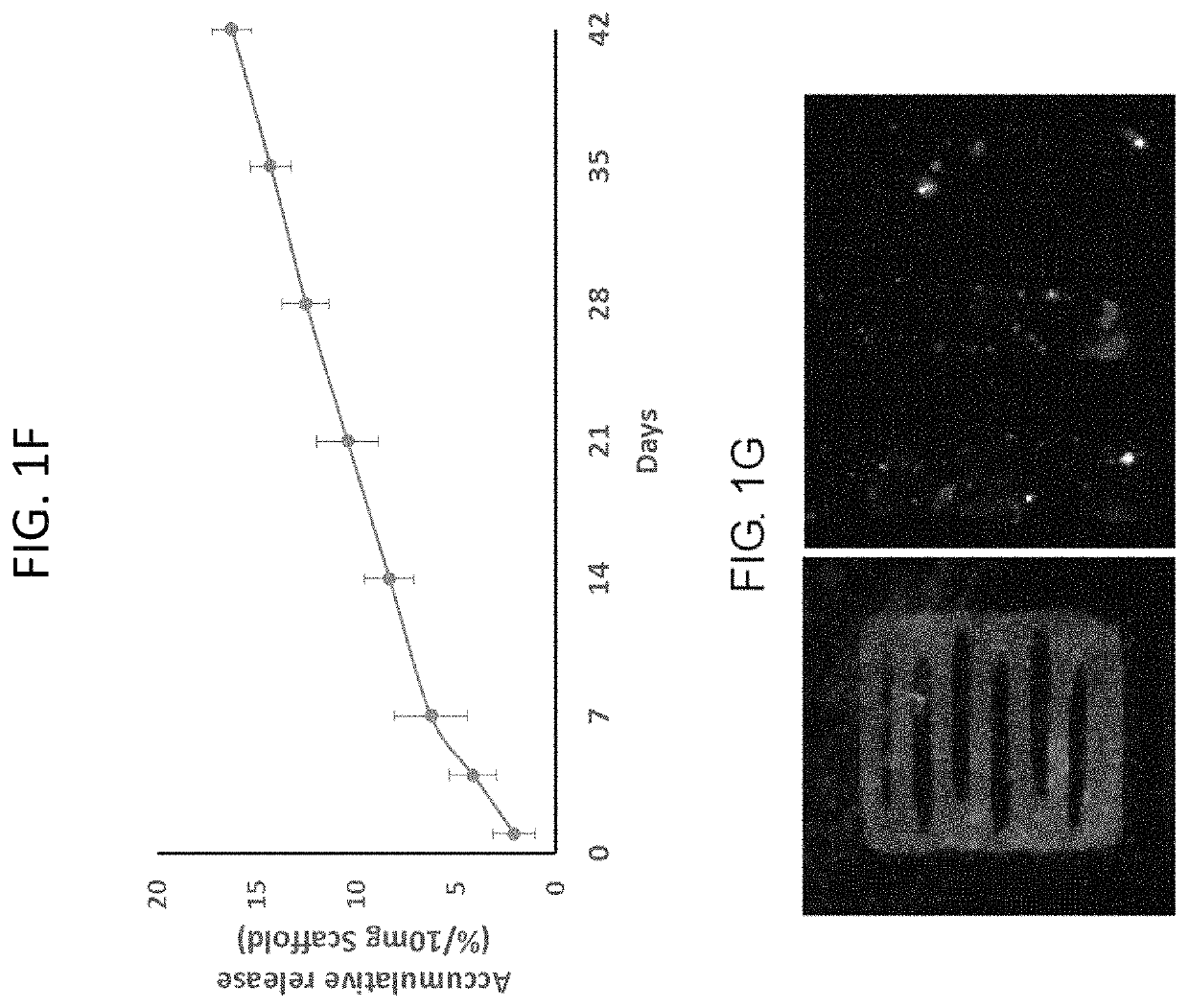Spatiotemporal delivery system embedded in 3D-printing
a technology delivery system, which is applied in the field of spatial and temporal resolution delivery system embedded in 3d printing, can solve the problems of inability to design and engineer conventional scaffolds, inability to perform as well, and inability to carry out cell culture ex vivo, etc., and achieve high spatial and temporal resolution
- Summary
- Abstract
- Description
- Claims
- Application Information
AI Technical Summary
Benefits of technology
Problems solved by technology
Method used
Image
Examples
example 1
d Biocompatible Scaffold for Multi-Tissue Interface
[0271]The following example provides for a 3D printed biocompatible scaffold with spatiotemporal delivery of microsphere encapsulated CTGF and TGFβ3.
[0272]Selected growth factors (GF) were encapsulated in poly(lactic-co-glycolic acids) (PLGA) microspheres (μS) for controlled release. Poly(lactic-co-glycolic acid) (PLGA) microspheres (10-400 μm) encapsulating CTGF, TGFβ3, and BMP growth factors, were prepared by double-emulsion technique.
[0273]Then 3D scaffolds with custom-designed microstructure and outer shape were constructed using layer-by-layer deposition of continuous PCL microfibers. PCL pellets and growth factor-encapsulated microspheres were mixed in dispensing cartilages of 3D Bioplotter® (EnvisionTec, Germany) and heated up to 100° C., selected from heating diffusion analysis (see e.g., FIG. 1A). Material was dispensed through a fine stainless steel needle (inner diameter 50 μm to 400 μm), creating micro-sized growth facto...
example 2
ctor Delivery in 3D Printed Multi-Tissue Interface Scaffold
[0281]The following Example demonstrates formation of multi-tissue interfaces in 3D-printed scaffold with spatiotemporal delivered CTGF and TGFβ3. Methods are according to Example 1 except as indicated otherwise.
[0282]A single layered rectangular structure was constructed (see e.g., FIG. 3A) with alternative PCL microfibers-embedding CTGF-μS and TGFβ3-μS (see e.g., FIG. 3B). The size of microfibers and interfibers space was 100 μm.
[0283]Then human bone marrow derived mesenchymal stem / progenitor cells (MSCs) were delivered in the scaffold's inter-fiber space via fibrin gel. After 4 weeks culture in vitro, alternative depositions of COL-I+ and COL-II+ matrices, corresponding to the pattern of growth factor delivery, forming an integrated interface within the 100-200 μm interfiber zones (see e.g., FIG. 3C).
[0284]This demonstrated PCL scaffolds with spatiotemporal delivery of CTGF and TGFβ3 successfully formed native-like micro-...
example 3
poral Delivery of Growth Factors Embedded in 3D Printed Multi-Tissue Scaffolds
[0285]The following example will test the efficacy of the spatiotemporal delivery of growth factors (GFs) embedded in 3D printed scaffolds (see e.g., Example 1) for regeneration of multi-tissue complexes.
[0286]Scaffolds are first cultured with multiple stem / progenitor cell populations in vitro (see e.g., Example 5, Example 6, and Example 7), followed by in vivo implantation in a relevant animal model (see e.g., Example 5).
[0287]Scaffolds are designed with spatiotemporal delivery of growth factors. An anterior cruciate ligament-fibrocartilage-bone interfaces (see e.g., FIG. 4A) and supraspinatus tendon-fibrocartilage (unmineralized and mineralized)-bone interfaces (see e.g., FIG. 4B) are reconstructed in 3D-printed scaffolds with spatiotemporally delivered growth factors.
[0288]In a similar way, a cementum (CM)-periodontal ligament (PDL)-alveolar bone (AB) complex is reconstructed (e.g., periodontium) (see e...
PUM
| Property | Measurement | Unit |
|---|---|---|
| inner diameter | aaaaa | aaaaa |
| inner diameter | aaaaa | aaaaa |
| diameter | aaaaa | aaaaa |
Abstract
Description
Claims
Application Information
 Login to View More
Login to View More - R&D
- Intellectual Property
- Life Sciences
- Materials
- Tech Scout
- Unparalleled Data Quality
- Higher Quality Content
- 60% Fewer Hallucinations
Browse by: Latest US Patents, China's latest patents, Technical Efficacy Thesaurus, Application Domain, Technology Topic, Popular Technical Reports.
© 2025 PatSnap. All rights reserved.Legal|Privacy policy|Modern Slavery Act Transparency Statement|Sitemap|About US| Contact US: help@patsnap.com



